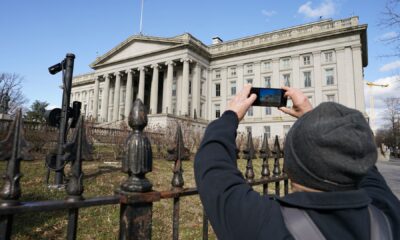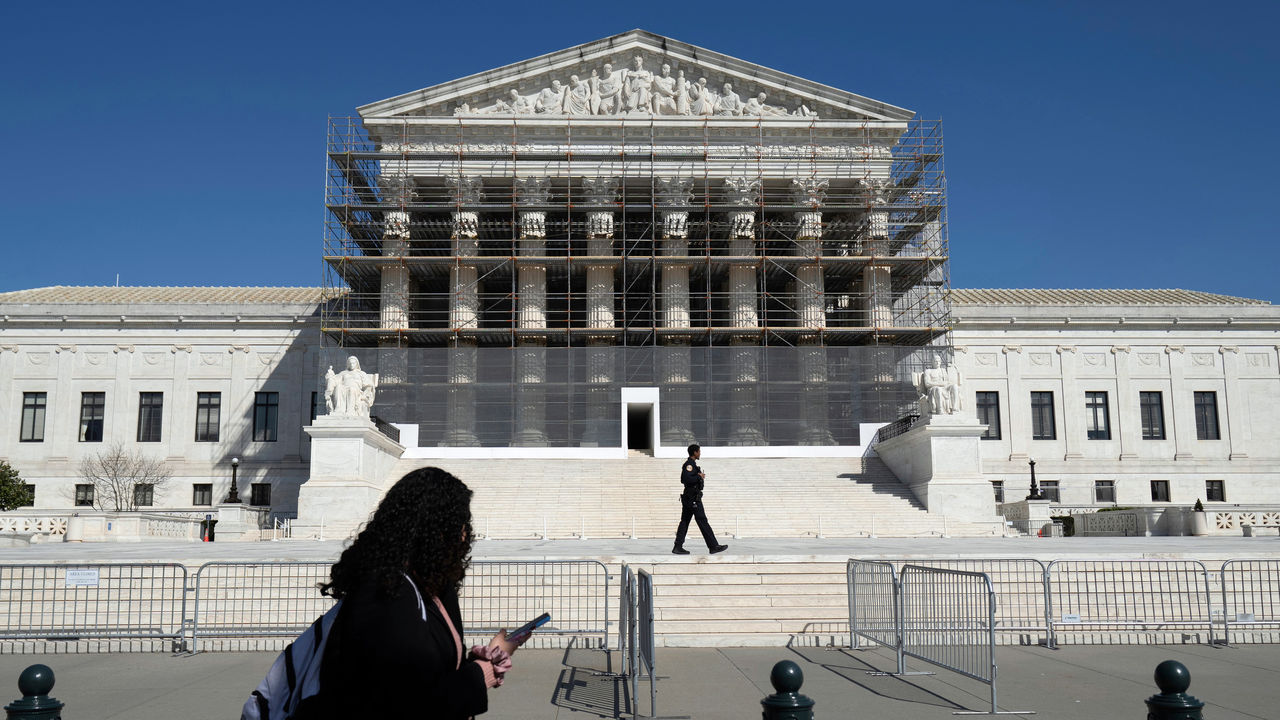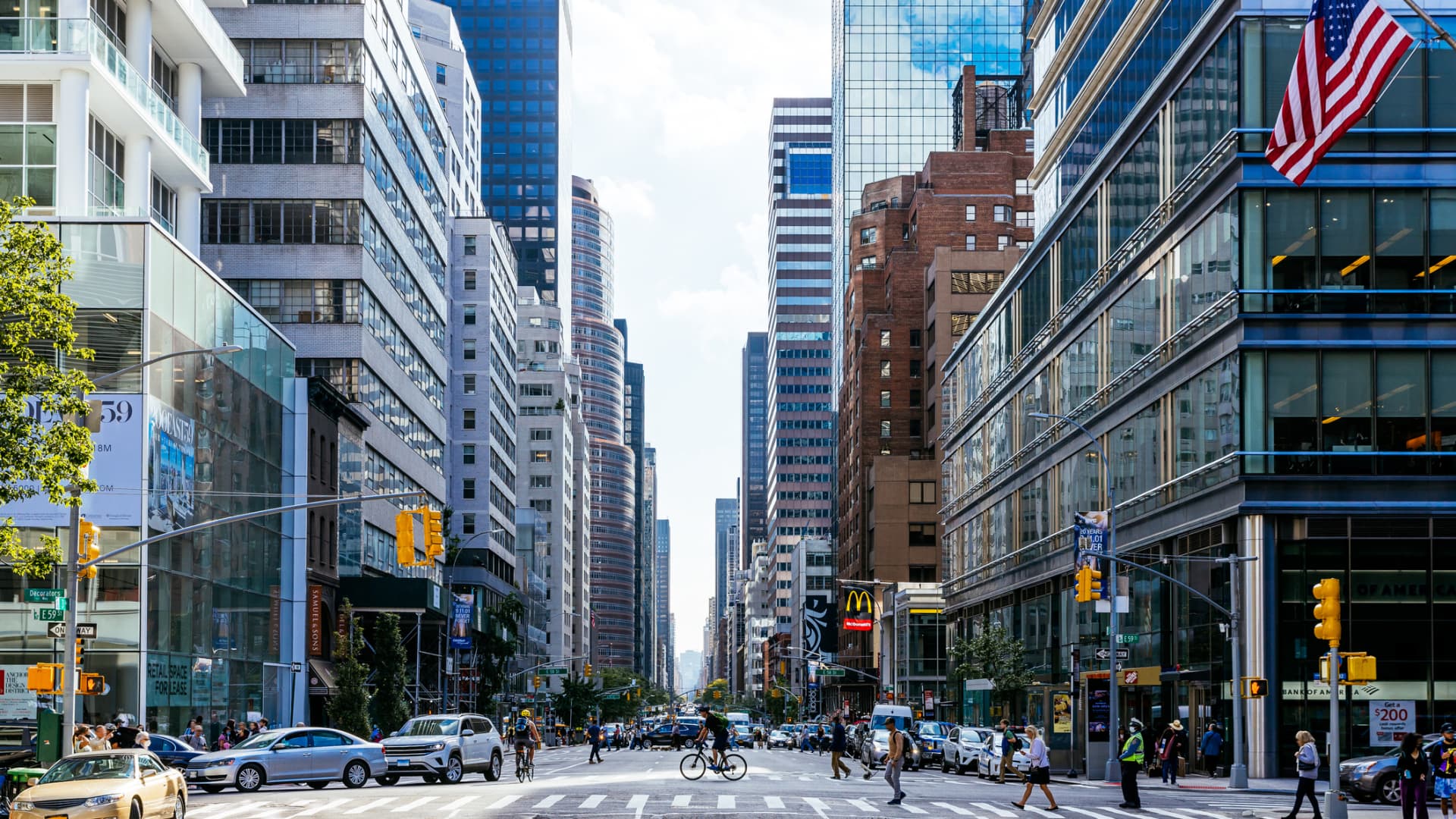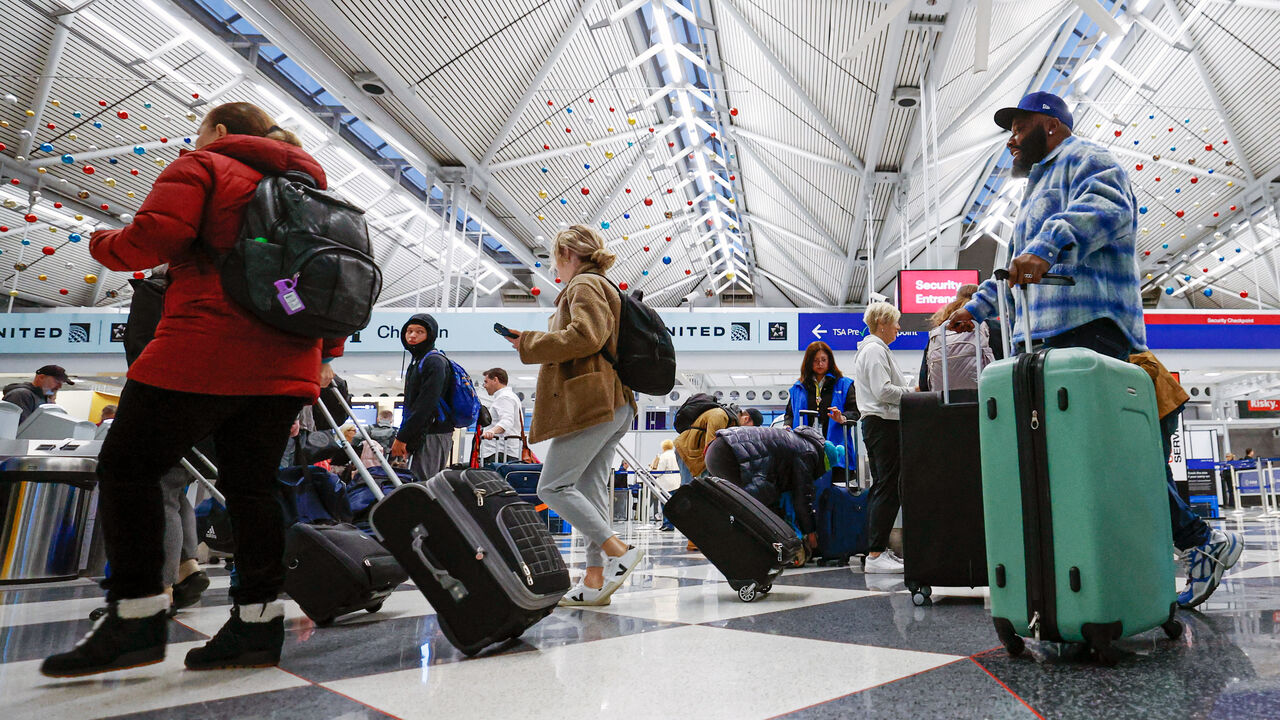Americans grew less fearful about inflation in May as President Donald Trump backed off the most severe of his tariff proposals, according to a New York Federal Reserve survey Monday.
The central bank’s Survey of Consumer Expectations showed that the one-year inflation outlook took a substantial dip, down to 3.2% — a 0.4 percentage point decrease from April.
At the three-year horizon, the outlook fell 0.2 percentage point to 3%, while the five-year forecast edged down to 2.6% from 2.7%.
While all three are still above the Fed’s 2% annual target, they represent progress and a change in a fearful attitude that coincided with Trump’s saber-rattling on tariffs, culminating with the April 2 “liberation day” announcement.
Trump initially slapped universal 10% tariffs on all U.S. imports and a menu of so-called reciprocal duties on dozens of nations. However, he soon backed off the latter measures, opting for a 90-day negotiating window that expires in July.
The New York Fed survey, which is less volatile than others such as the University of Michigan and Conference Board measures, provides some good news for the White House at a time when administration officials are trying to tamp down worries about tariff-induced inflation.
“By every measure of inflation, it’s down by more than it’s been in more than four years,” National Economic Council Director Kevin Hassett said Monday morning on CNBC’s “Squawk Box.” “While the tariff revenue has been going up, inflation has been coming down, which is contrary to the story that everybody else has been saying, but very consistent with what we’ve been saying.”
Inflation as measured by the Fed’s preferred personal consumption expenditures price index was at 2.1% in April, matching lowest its been since February 2021. Excluding food and energy, core PCE stood at 2.5%, a gauge Fed officials believes is a better measure of longer-term trends.
The Fed survey showed expectations dipping across most price groups, though respondents did see food prices rising by 5.5% over the next year, a 0.4 percentage point increase from May and the most since October 2023. Elsewhere, respondents saw gas price increases easing to 2.7%, down 0.8 percentage point. The outlook for medical care, college education and rent increases also were lower on a monthly basis.
There also was a positive move in employment, with those expecting to lose their job over the next 12 months dipping to 14.8%, down half a percentage point.
Other areas showed optimism as well: The probability of missing a minimum debt payment over the next three months fell half a point to 13.4%, its lowest since January. Respondents also had more confidence in stocks, with 36.3% expecting the market to be higher a year from now, up 0.6 percentage point.

 Blog Post1 week ago
Blog Post1 week ago
 Economics1 week ago
Economics1 week ago
 Personal Finance7 days ago
Personal Finance7 days ago
 Personal Finance1 week ago
Personal Finance1 week ago
 Personal Finance1 week ago
Personal Finance1 week ago
 Finance1 week ago
Finance1 week ago
 Economics3 days ago
Economics3 days ago
 Finance1 week ago
Finance1 week ago


















